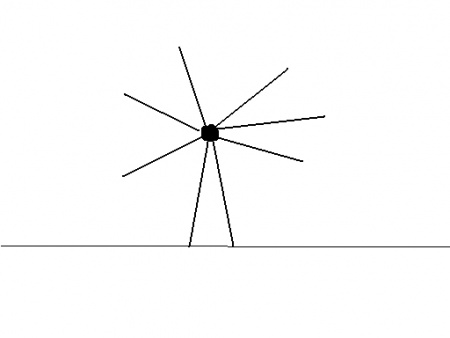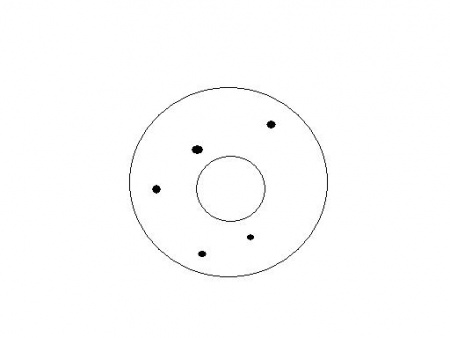✨Creating an account only takes 20 seconds, and doesn’t require any personal info.
If you’ve got one already, please log in.🤝
Difference between revisions of “Visual puzzle”
mNo edit summary |
m (Text replacement - ""." to ".”") |
||
| (81 intermediate revisions by 5 users not shown) | |||
| Line 1: | Line 1: | ||
'''Visual puzzles''' | '''Visual puzzles''' are commonly used in [[TEFL]] to teach grammatical structures such as [[relative clause]]s, or (semi)fixed phrases such as "more or less.”<ref>12 of these visual puzzles depicting lexical items can be found in the book '''''Multiple Intelligences in EFL: Exercises for Secondary and Adult Students''''' by Herbert Puchta and Mario Rinvolucri, Cambridge University Press</ref> The task of deciphering the visual puzzles can be difficult and as the task involves little communication, it is advisable to set short time limits or keep the number of puzzles presented to a minimum. | ||
[[Image:Egg.jpeg|300px|frame|left|A Mexican, or cowboy, (who is) frying an egg—one of the most renowned visual puzzles]] | |||
<br clear=all> | |||
[[ | Perhaps the most useful [[language]] point demonstrated in this type of puzzle is the reduced relative clause, in which the [[relative pronoun]] may be omitted, as in above and these examples: | ||
[[Image:Puzz.jpeg|400px|frame|left|Various visual puzzles]] | |||
#A Mexican (who is) riding a motorbike | |||
#A Mexican couple (who are) kissing | |||
#A giraffe (which is) passing a window | |||
#An elephant (which is) passing a window | |||
#Three Mexicans (who are) rowing a boat | |||
#A koala (which is) hanging onto a tree | |||
#A knife (which is) viewed from its end | |||
#A Mexican (who is) riding a surfboard | |||
<br clear=all> | |||
[[ | However, not all images of this type use the reduced relative clause; the following must use a [[relative pronoun]]: | ||
[[Image:Spider.jpeg|450px|thumb|left|A spider which has just won the lottery]] | |||
[[Image:Bowtie.jpeg|450px|thumb|left|A man whose bow tie has got stuck in a lift]] | |||
[[Image:T.jpeg|450px|thumb|left|A Mexican whose tie has fallen into his soup]] | |||
[[Image:Cowboy.jpeg|450px|thumb|left|A cowboy who has just survived a gun battle]] | |||
<br clear=all> | |||
[[Image: | [[Idioms]] and (semi)fixed lexical phrases can also be taught and tested through visual puzzles. | ||
[[Image:More.jpeg|frame|left|More or less]] | |||
[[Image:Ov.jpeg|frame|left|Over the top]] | |||
[[Image:French.jpeg|frame|left|French kiss]] | |||
[[Image:One.jpeg|frame|left|One in a million]] | |||
[ | <br clear=all> | ||
==Additional exercises== | |||
Can you dream up visual puzzles for more idioms or collocations? | |||
*hands down? | |||
*overpaid? | |||
*a piece of cake? | |||
*sitting on top of the world? | |||
*underworked? | |||
*out on a limb? | |||
<br clear=all> | |||
==References== | |||
<references/> | |||
{{index}} | |||
==External links== | |||
[http://lessonstream.org/2007/11/09/mexican-doodles/ Mexican doodles at lessonstream] The inspiration for some of these ideas whose author, Jamie Keddie, has agreed to their being shared. | |||
[http://www.scientificpsychic.com/graphics/index.html Optical illusions] An interesting page of optical illusions. | |||
[[category:visual aids]] | |||
[[category:games]] | |||
[[category:warmers]] | |||
[[category:coolers]] | |||
Latest revision as of 13:13, 22 June 2023
Visual puzzles are commonly used in TEFL to teach grammatical structures such as relative clauses, or (semi)fixed phrases such as "more or less.”[1] The task of deciphering the visual puzzles can be difficult and as the task involves little communication, it is advisable to set short time limits or keep the number of puzzles presented to a minimum.
Perhaps the most useful language point demonstrated in this type of puzzle is the reduced relative clause, in which the relative pronoun may be omitted, as in above and these examples:
- A Mexican (who is) riding a motorbike
- A Mexican couple (who are) kissing
- A giraffe (which is) passing a window
- An elephant (which is) passing a window
- Three Mexicans (who are) rowing a boat
- A koala (which is) hanging onto a tree
- A knife (which is) viewed from its end
- A Mexican (who is) riding a surfboard
However, not all images of this type use the reduced relative clause; the following must use a relative pronoun:
Idioms and (semi)fixed lexical phrases can also be taught and tested through visual puzzles.
Additional exercises[edit | edit source]
Can you dream up visual puzzles for more idioms or collocations?
- hands down?
- overpaid?
- a piece of cake?
- sitting on top of the world?
- underworked?
- out on a limb?
References[edit | edit source]
- ↑ 12 of these visual puzzles depicting lexical items can be found in the book Multiple Intelligences in EFL: Exercises for Secondary and Adult Students by Herbert Puchta and Mario Rinvolucri, Cambridge University Press
External links[edit | edit source]
Mexican doodles at lessonstream The inspiration for some of these ideas whose author, Jamie Keddie, has agreed to their being shared.
Optical illusions An interesting page of optical illusions.









